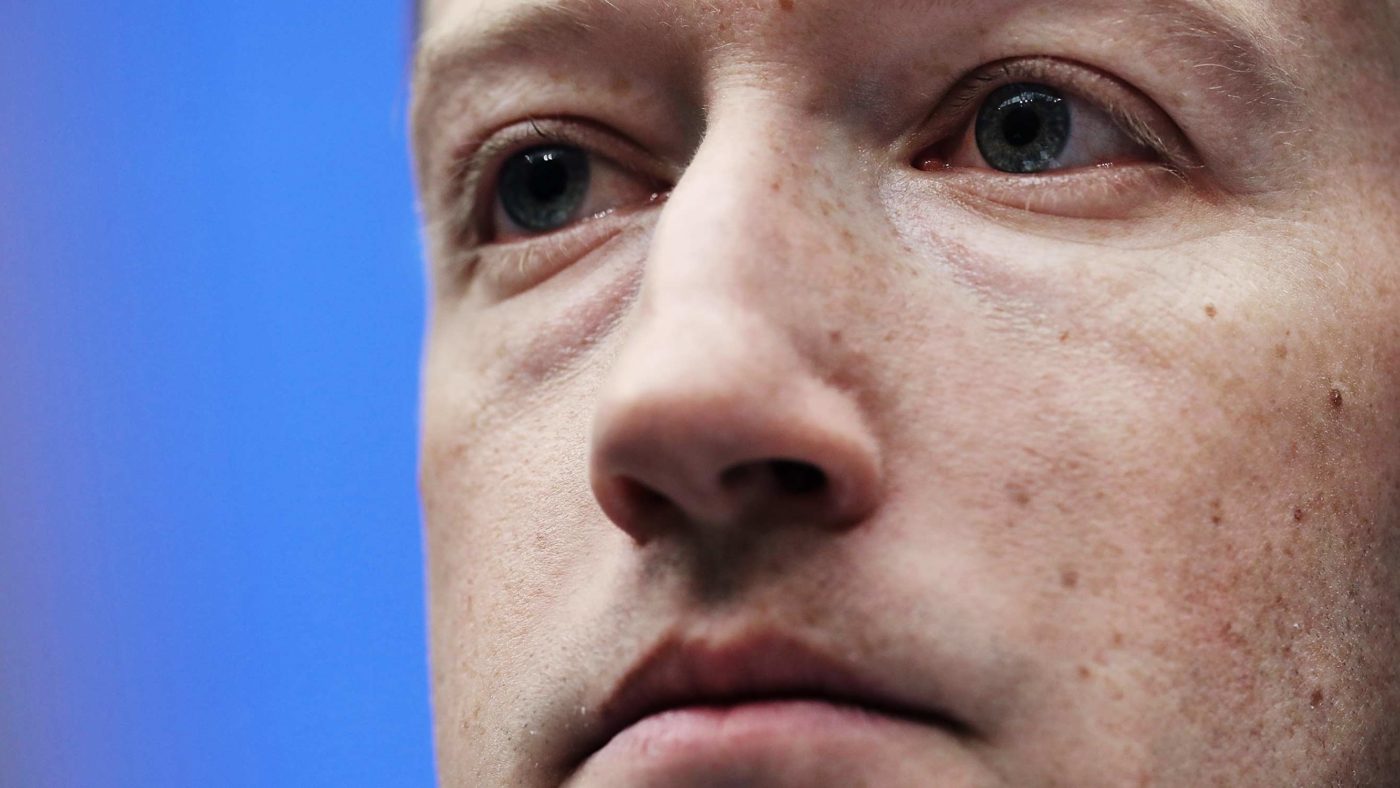When Mark Zuckerberg told a technology conference in 2016 that the idea fake news on his social network was being used to undermine elections was “pretty crazy”, his critics went — well — pretty crazy. His speech shortly after the election of Donald Trump was later criticised by senators investigating interference in the US elections. A year later, Zuckerberg offered a mea culpa, expressing regret at his “dismissive” language.
This is a shame, because Zuckerberg’s actual comments were much more nuanced than his critics let on. His argument was that those looking for signs of secret agents meddling in the presidential campaign hadn’t “internalised the message that Trump supporters are trying to send in this election”.
Much as Corbynistas might rail against the Mainstream Media, or Remainers against red buses, the fake news brigade were taking comfort in conspiracies rather than analysing why they had actually lost.
In a recent New Yorker profile, Zuckerberg was much more forthright, expanding on this point: “I find the notion that people would only vote some way because they were tricked almost viscerally offensive… it goes against the notion that you should trust people and that individuals are smart and can make their own assessments.”
In all of Evan Osnos’s 14,000 word article, this comment is perhaps the most telling. Much of the narrative surrounding Facebook and fake news is one of neglect. Facebook was so busy chasing clicks they were blind to its platform being spoofed by Russian black ops. According to Zuckerberg, the real explanation has much more to do with Facebook’s idealism when it comes to human nature.
For someone who is frequently accused of being an automaton, Zuckerberg shows a great deal more empathy for humanity than his detractors. He backs people to make their own minds up and doesn’t think they will be unduly swayed to the point of frenzy by the videos that crop up on their newsfeed.
For anyone who uses Facebook this point should be obvious. We all think our opinions are, broadly speaking, motivated by logic; we don’t have a Pavlovian response to agree with every opinion we come across on the site. Why should other people be so different?
Zuckerberg displays a nuanced — and realistic — approach to the concept of hate speech, even to his own detriment. Facebook is forced to employ 20,000 moderators, “able to review reports in 50 languages, 24 hours a day” precisely because Zuckerberg will not impose a blanket ban on certain words or phrases.
His intuition is that arguments need time to develop and debate, not censorship, can be the best cure to hate speech. This has led to a code of conduct described as Byzantine and, ironically, his admission that it was “easier to build an AI system to detect a nipple than what is hate speech.”
Zuckerberg’s libertarian stance on language is surely a good thing. As Facebook increasingly takes on the role of the public sphere, Jurgen Habermas’s concept of the Renaissance marketplace where ideas could be aired and debated away from the strictures of government, it is refreshing that Zuckerberg’s impulse is to encourage debate, not shut it down.
It is also important given the amount of power Facebook has to shape this debate. This year Facebook received as much income from advertising as all of the newspapers in the United States combined. The site also wields a secondary weapon in that its news feed is one of the main gateways to those newspapers’ websites. As traditional media is fading, Facebook is only growing in importance, making Zuckerberg William Randolph Hearst, Ted Turner and Rupert Murdoch all rolled into one.
While this all might be flattering to Zuckerberg’s well-documented Augustus complex, we should at least be thankful that so far his instincts are to be a benign overlord of this public sphere. The New Yorker itself admitted to feeling a little queasy when complaints of fake news and hate speech finally persuaded Facebook to banish the editor of Infowars in a rare show of force: “You don’t have to be a fan of Alex Jones to be unnerved by the company’s extraordinary power to silence a voice when it chooses, or, for that matter, to amplify others.”
Facebook’s power is also a cause for concern in the developing world. There are well-documented instances of Buddhist monks with large followings leading campaigns against Rohingya Muslims. It is difficult for Zuckerberg to square his laissez-faire attitude to words when his platform is being used in the middle of a war zone. Facebook is recruiting more Burmese language moderators but the site’s inherent logic means that it will always be a step behind the next crisis wherever it flares up.
But at a time when concerns over technology are increasingly requiring more prescriptive behaviour from companies and restrictions on free speech are regarded as increasingly normal, of which the Labour conference’s idea of editorial commisars is but the latest terrifying example, Zuckerberg’s outlook is reassuring.
Whether he is committed to liberal values or is cynically pursuing ever greater user numbers, Zuckerberg’s appearance on the side of free speech and his central role in the debate over its limits, is a rare piece of good news for those who favour openness in a world increasingly looking for censorship.


